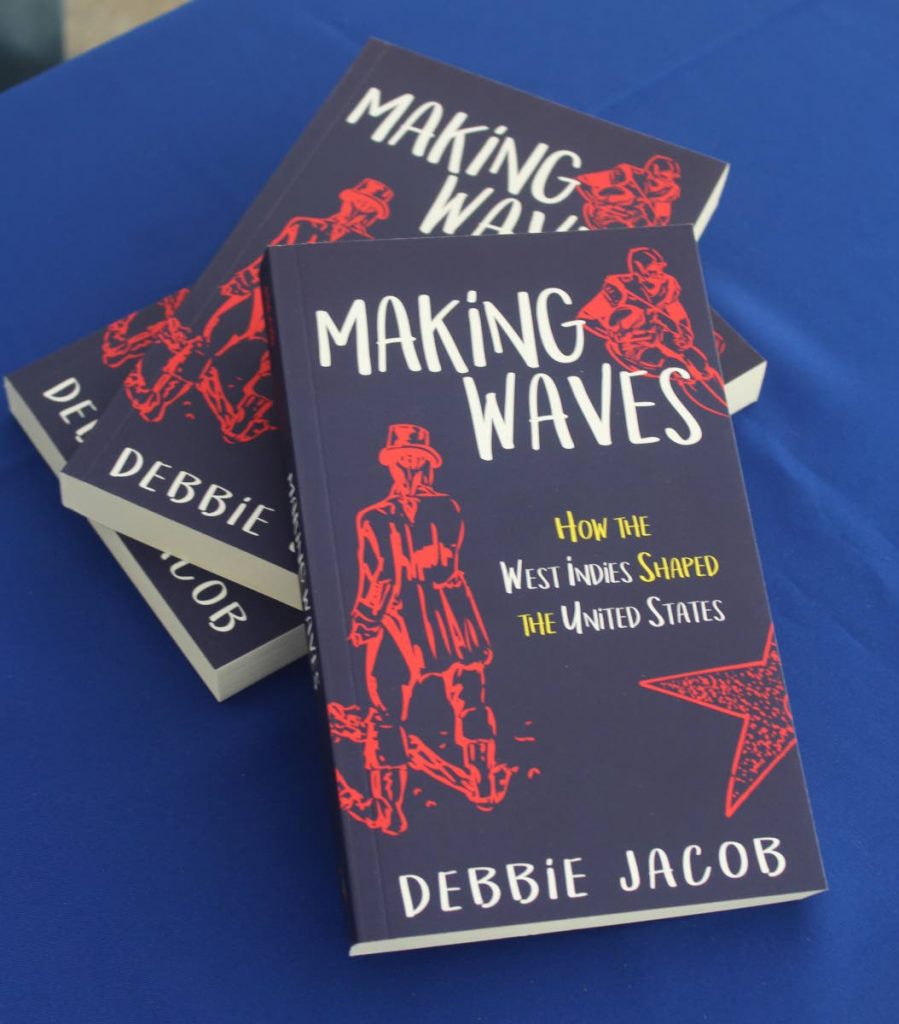Offenders Making Waves

The large, green, recessed metal gates of the high, cream wall that encircles the compound known as the “Royal Jail” always held mystery to me, ever since childhood. What lay beyond was terra incognita, not ever to be discovered. Therefore, it was with a mixed sense of elation and trepidation that I entered the compound last weekend at the behest of fellow Newsday columnist and professional collaborator Debbie Jacob.
Making Waves: The Impact of the West Indies on America, her latest book, was being launched at the gaol, and a group of about forty invited “outsiders” and a similar number of residents of that 170-year old site on Frederick Street were to be the guests of the book’s author. It was one of the events in the implementation of her strategy of normalisation of the people held at the wish of the State for wrongdoing. Using the power of stories, ideas and unknown facts captured in books, Jacob has had success in improving the inner lives of quite a few individuals who have found themselves behind bars. As an aside, I might add here that many people who have not suffered the misfortune of living lives that lead to physical incarceration might also want to try reading as a way of easing the burdens of “normal” living and the emotional incarceration and narrowness of vision that shackles us. It is amazing how many people do not read books simply because they have never discovered the sheer pleasure of it. That may be due to the fact that so few people read to their children that the habit never forms and also to the unimaginative way in which most of us are brought into contact with literature while at school. Amongst the uninitiated I sense a deep resistance, even a fear of engaging with the page, but that is for another day.
Apart from the novelty of being in one of the oldest buildings in our capital city, the experience deepened my knowledge that the perfectly ordinary-looking people sitting opposite us “free” people were there because of misfortunes of birth, family, schooling and social environment, all of which shape our course through life and over which we have little control until it is almost too late. Many escape, but not all have the wherewithal to overcome disadvantage. Prison is one of the places that can help equip such individuals for leading better lives, and the arts and education are important tools.
This fact is not lost on the Commissioner of Prisons Gerald Wilson who, in an enlightening speech, bemoaned the “lock them up and throw away the key” approach to prisoners sadly prevalent in TT. Almost as an act of defiance the gaol’s former death row has been turned into a library/reading room for prisoners, now called “clients” where they can receive their children and read to them. Recently, at the Long Circular Mall in St James, there was an exhibition of artworks done by prison clients, and some of the paintings now grace the walls along the corridor leading to the peaceful library that the Children’s Ark and Wishing for Wings Foundations established.
Commissioner Wilson’s policy of offender rehabilitation has been well established elsewhere. While living in Britain, I was a trustee of the Koestler Trust, which is a prisons arts charity set up in the 1950s to work across the UK’s criminal justice and secure systems, including prisons, young offenders institutions, medium and high secure hospitals, secure children’s homes and immigration centres, and also people in the community (on probation, engaged with youth offending teams, and on community sentences).
Essentially, the trust uses art for rehabilitation of offenders and ex-offenders, encouraging them to lead more positive lives by motivating them to participate and achieve in the arts and by challenging negative preconceptions of what ex-offenders can do. The arts are broadly interpreted to be any act of imaginative creation: Nail design and hair styling, matchstick modelling, sculpture, pottery are accepted, even radio plays, and each year these works of art are judged for prizes and many hundreds are exhibited and sold at a London art exhibition. For many offenders, that rare validation of them is enough to help them along the road to reforming their lives.
It can be that simple, and evidence of the positive results exists.
We talk about a crisis of leadership in TT but Debbie Jacob and Commissioner Wilson have provided that. We now need many more people and institutions to collaborate, including arts venues, the probation services and charities supporting victims of crime. And, most of all, we need to change our mindset and strive to be a more compassionate and less judgemental people.

Comments
"Offenders Making Waves"